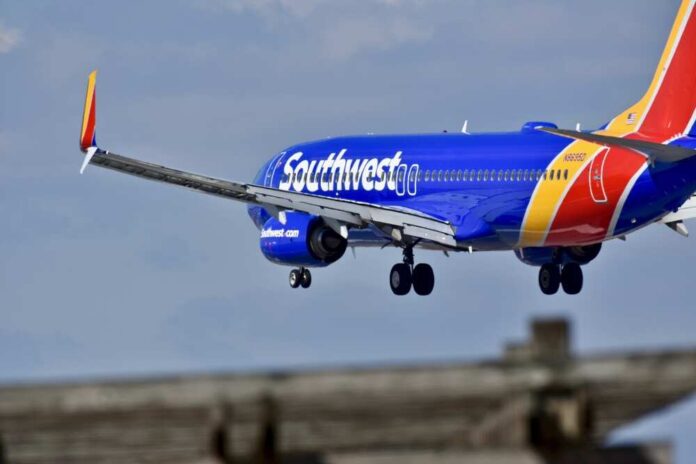
Southwest Airlines is in the news again, but this time it is not due to the widespread flight cancellations and delays that have earned it such negative publicity over the past year.
A flight from Las Vegas, Nevada, to Columbus, Ohio, on Wednesday began uneventfully, but after just over an hour in the air, the jet’s captain suffered a medical emergency and became incapacitated.
Fortunately, an off-duty pilot from another airline was aboard the plane and was able to step in and help safely land after turning back toward Las Vegas.
According to a statement from Southwest Airlines: “It’s standard procedure for our Flight Crews to request assistance from traveling medical personnel during in-flight medical events involving Customers, this situation just so happened to involve one of our Employees.”
Airline spokesperson Chris Perry noted that the credentialed pilot who was a passenger on the flight “assisted with radio communication while our Southwest Pilot flew the aircraft,” expressing appreciation for “their support and assistance.”
As evidenced by flight traffic communications published on the site LiveATC, someone aboard the plane said that the captain “fainted or became incapacitated” a few minutes after complaining of stomach pains.
About a minute later, the captain “came back,” but was unable to continue operating the jet. He was taken to the back of the plane where a nurse on board rendered first aid.
“We need to get him on an ambulance immediately,” someone on the recording said.
The flight was ultimately able to make its scheduled trip to Columbus and the Federal Aviation Administration is reportedly investigating the matter.
“We commend the crew for their professionalism and appreciate our customers’ patience and understanding regarding the situation,” said an airline spokesperson.
According to Aero Consulting Experts CEO Ross Aimer, situations like this one are uncommon in part because pilots are required to receive medical examinations twice per year. Furthermore, he noted that a first officer who is “equally qualified and trained” to fly the jet is in the cockpit with the captain on each flight.
There is some evidence that such incapacitations have been happening at a more frequent rate recently as the airline industry struggles to find enough pilots to fill all open positions.
I’m being notified by passengers on a Southwest flight departing Las Vegas that the captain became incapacitated soon after takeoff this morning. He was removed from the flight deck and replaced by a non Southwest pilot who was commuting on that flight. This is now the fifth…
— Josh Yoder (@JoshYoder) March 22, 2023
Although the first officer was assuredly capable of landing the jet after the captain’s medical emergency, Aimer concluded that having another pilot step in was probably the “icing on the cake” that ensured a smooth resolution to the mid-air emergency.














